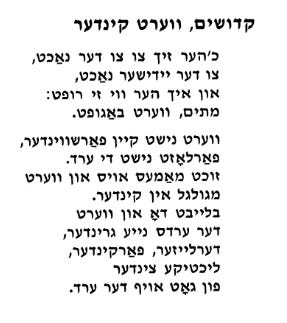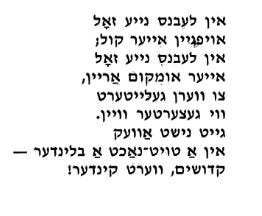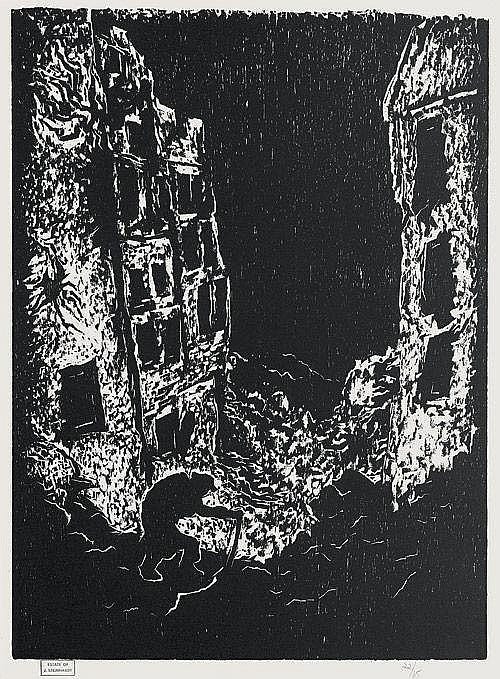Dust...
Two Poems by Aaron Zeitlin
What an awful week it’s been. Though “awful” is, of course, inadequate. Like many, many people right now I am grieving and angry and terrified over all the suffering and violence inflicted on Israelis and Palestinians over the past several days, and all the suffering and violence yet to come.
I won’t be following my normal format today and sharing an essay. Instead I’ll just offer translations of two poems by Aaron Zeitlin (1898-1973), whom I’ve written about several times in this newsletter. Zeitlin was traumatized by the murder of his entire family in the Warsaw ghetto, and the first of these poems was written in 1942, while the war was still underway.
I often turn to his writing in times of anguish and extremity because Zeitlin has an exceptional ability to articulate the spiritual core of his grief and his despair, and to find a kernel of hope not despite that grief and despair but within it.
Dust
Night. I ceased asking.
Paths rest.
Stars teem.
My questions drowse
exhausted
in a speechless stable.
The metal moon
glows cold.
A treetop
holds still.
I sit,
bow my head to my knees:
the effort is over--
is day worth the effort?
Somebody's born, somebody's destroyed----
Somewhere there is an answer!
The stars promise.
I believe. I believe.
But I won't ever hear the answer.
Dust will I become,
dust.
Martyrs, Become Children
I listen to the night,
the Jewish night,
and hear how it calls out:
dead ones, become incarnate.
Do not become the disappeared,
do not abandon the earth.
Find mothers and be
reincarnated as children.
Stay here, become
the earth's new founders,
redeemers, child-bearers,
bright sparks
to kindle God on earth.
Let your voices rise
within new lives,
let your deaths enter
into new lives,
be purified like wine.
Do not leave
in a blind death-night,
martyrs, become children!
There are still spots available in my four-week, online Introduction to Yiddish Poetry class. No knowledge of Yiddish is required. You can find details here. If you’re already a paying subscriber to this newsletter, please feel free to ignore the sliding scale and pay whatever you’d like.
From Jakob Steinhardt’s Elegies of War woodcuts:





